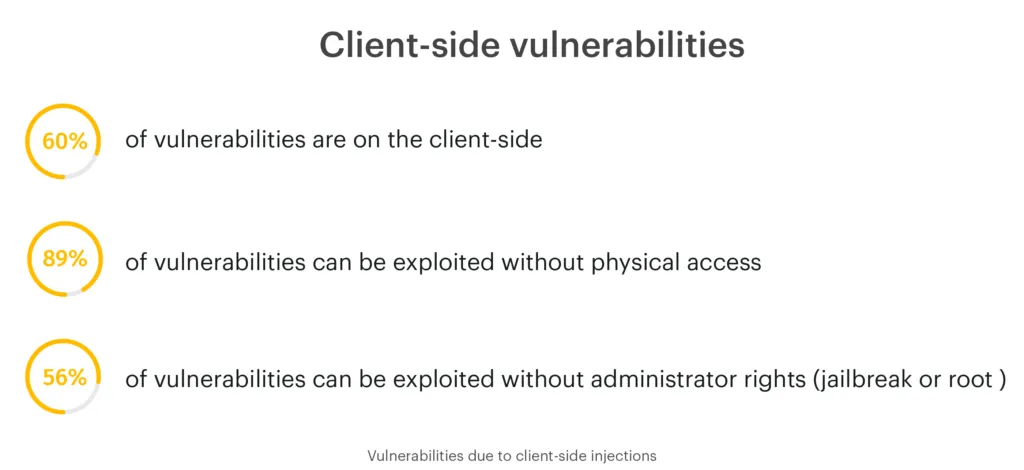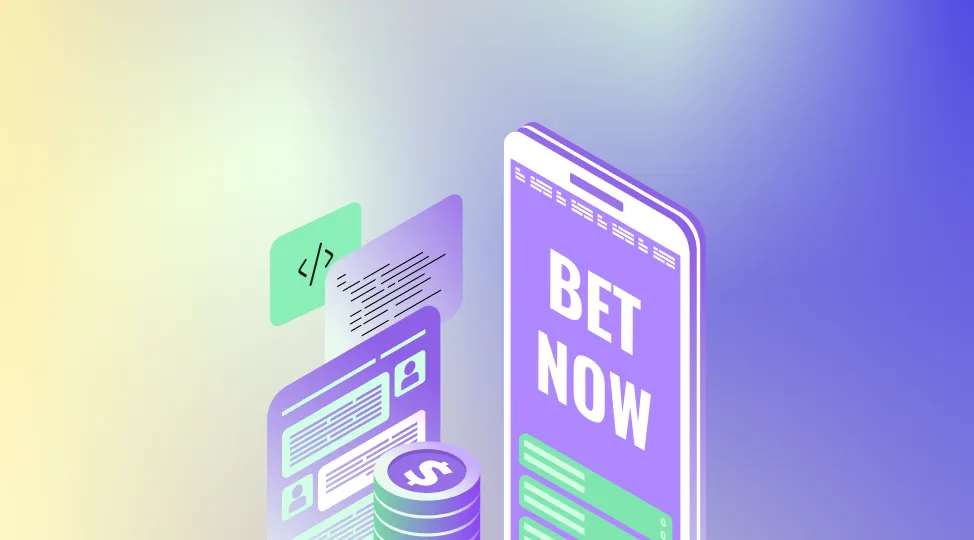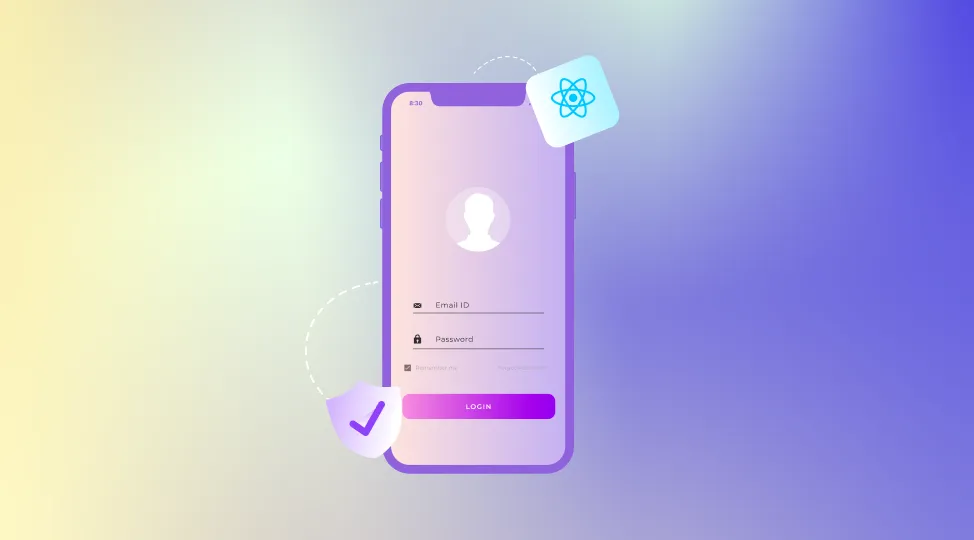With multi-frontal technology advancements happening in industries dealing with mobility solutions, security threats related to user data & application networks are becoming increasingly frequent.
Such deceptive attacks are always a pain for a growing enterprise, as a security issue can tarnish the brand's image. Mobile app security thus becomes quintessential; it is a process of testing and examining an application to ensure that mobile apps and APIs are secure from potential attacks.
Often, organizers need to be more capable of adapting their security protocol to mitigate emerging threats. Unfortunately, the tools used to develop top-tier mobile apps, by their very nature, are the same tools used to exploit their vulnerabilities! By default, your app has access to the files in the app's sandbox directories; the user rights never allow external editing of in-system files(stored on the user's device). Nevertheless, one or more errors (called bugs in the DevOps world) can always penetrate while designing complex mobile applications, causing gaps in protection mechanisms.
The best practices to Develop a Self Defending App
Multifactor Authentication (MFA)
Usually, user-chosen usernames and passwords are more prone to get hacked and hence: stolen passwords and accounts. MFA implementation seeks different secure ways of signing in to deflect any uncommon sign-in
attempts. Here we enlist some popular processes:
- Time-based One-Time Password (TOTP)
- Short Message Service (SMS)
- Electronic Mail (Email)
- Push Notifications
Most of them work in 2 stages:
- Enrollment & Login
- Let's delve deeper
Enrollment
The enrollment process enables the user to set up the multifactor
authentication:
- The user logs into a website/application with a username and password.
- In TOTP, a 2-factor authentication is enabled for them after checking the credentials. For apps using SMS services, the user is asked for the mobile number where the code will be sent.
- Then the server generates a code (mostly a combination of characters, numbers, etc.) that can be stored by the app that implements Google Authenticator or Auth0 Guardian.
- The 2-factor authentication is hence completed. Mobile apps using SMS/email channels for enrolling require users to enter the code or click the authentication link manually.
Login
After enrollment, the user is logged in as follows:
- The user again logs into a website or mobile app with a registered username and password.
- A one-time password gets generated on the server, which is sent to the user's mobile and is entered again.
- After verifying the code, the user finally gets authenticated.
Giving the user multiple methods for authentications (TOTP, Email, Push Notification, SMS Text) can induce a better customer experience in your mobile app - resulting in better User Retention.
Optimizing Data Caching
Caching data locally is one of the most popular ways mobile apps use to improve customer experience and efficiency. But it also comes with a
significant drawback: locally, caching data makes it much more prone for hackers to breach and decrypt the cache data to steal users' account
information.
App data can include not only cached data as well as other
chunks of information saved earlier. These can consist of a user's login
information, preference settings within the app, etc. The data being
compassionate, it's a far more wise option to have a password to access
the application, which reduces the security vulnerabilities associated with
cached data.
Caching HTTP data is a foolish exercise. Developers should
also refrain from caching web data, especially HTTPS traffic. The body, or
chiefly the page header, may store user login credentials, hence crucial
to attack. Also, many Android and IOS systems are now capable of remote data wiping techniques: the user doesn't have to manually delete the cache every time they log into your app.
The best way is to implement Enterprise Device Swipe. Setting a device swipe as your enterprise security solution, you can selectively delete your business-related content without touching the user's personal information.
Restricting Client Side Injection
Client-side injection results in the execution of malicious code on the
client side, which is via the mobile app. Generally, this malicious code is
provided as data that the user unintentionally inputs into your
mobile app.
This particular data forces a context switch during processing, and the framework reinterprets the data as executable code. While the " best-case" scenario will have the malicious code with the same scope and access permission, in the worst-case scenario, the code executes with privileged permissions and a much greater extent leading to much more significant damage potential, including data theft, access to data storage (most mobile applications use SQLite engine for storing app data), account hacking and more.

To reduce the chances of a client-side injection, as a basic guideline, one should look into the following:
Data stored on the device
User sessions
Mobile application interfaces
Now let's learn about the Android and ioS-specific practices for preventing client-side injections.
Android:
- SQL Injection: monitor the dynamic queries: harmful data may be supplied using "%@" instead of a proper parameterized query "?".
- Local File Inclusion: File System Access shouldn't be enabled for any WebViews.
- Validate Intent: Implement the Intent Filter for all activities to validate data and actions.
- JavaScript Injection: Verify that JavaScript and Plugin support is disabled for any WebViews.
iOS:
- XML Injection: Always consider libXML2 over NSXMLParser as a right-hand rule.
- Refrain from Old Objective-C: Objective C is a superset of C hence avoid old vulnerable Objective C functions as they are easily prone to classic C attacks.
- UIWebViews: Ensure that UIWebViews (Javascript injection) do not execute without proper input validation
- Local File Inclusion: Enable strict input validation for all NSFileManager calls.
Finally, Test, Test, and Test!
Having embraced the three most important mobile app security practices, we should remember that however robust your application code and structure are. Attackers are constantly engaged in finding one way or the other to breach. Mobile app testing reduces risks, tests potential vulnerabilities, and examines software to ensure that an application or a feature is safe and meets adequate security compliance.
Most often, cybersecurity experts use a variety of tests and strategies to monitor vulnerabilities to assess the security of a mobile app. The experts often simulate repeated near-realistic cyberattacks to understand and identify potential risks. The mobile app is examined, and the entire back-end of the system, supporting framework, and the APIs get engineered and modified occasionally. With the growth of the digital ecosystem, Mobile App Security has become a bare necessity. Suppose you are concerned about your mobile app security & want even a security audit of your application.
In that case, you can consult our top developers at Quokka Labs , who are committed to developing Hack Free Mobile Apps by following the best security measures. No application is safe enough to combat Malware & Security Breaches - a simple mistake could cost your company a vast amount of money, & on top of that - you will lose a lifetime of trust.
Tags
Self Defending App
Mobile app Development



 Facebook
Facebook
 Twitter
Twitter
 LinkedIn
LinkedIn
 Pinterest
Pinterest






